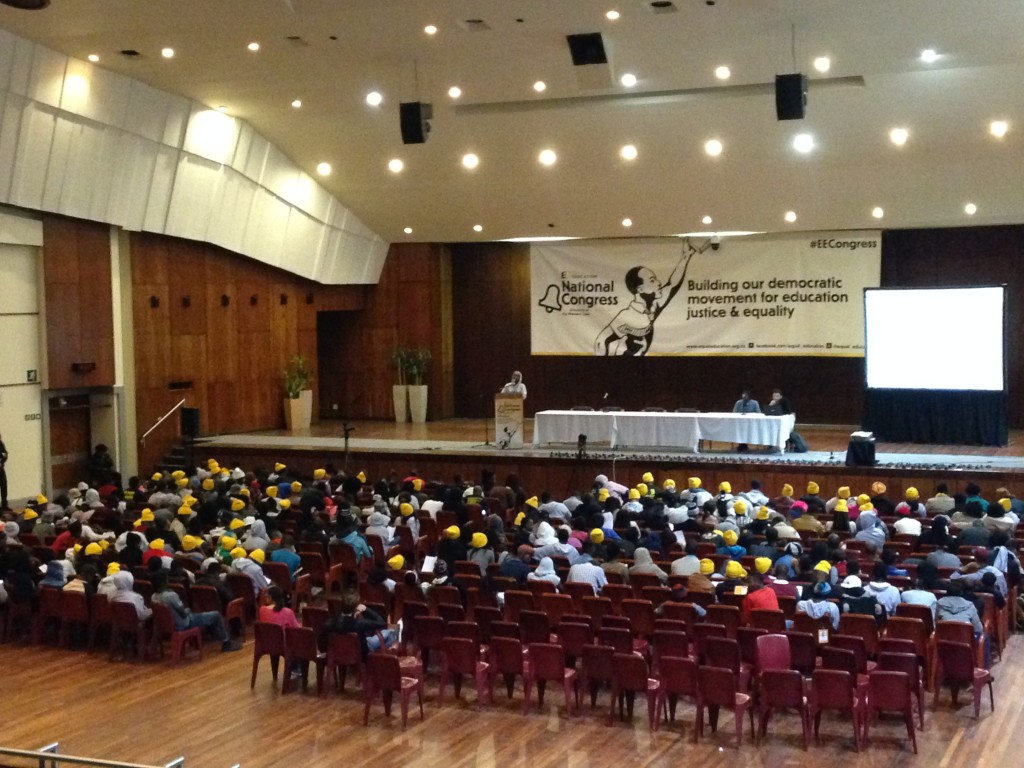My main project at the Equal Education Law Centre is a memo about sexual offenses committed by educators in schools—a very sad but interesting and important topic. It can be frustrating, as some of the data I need about the implementation of various laws and policies just doesn’t exist, but it’s also exciting because there are real gaps in the law and administrative guidelines that I can explore. I also think that it’s good for me to get more comfortable with this kind of research, mixing the legal framework with information about how the laws actually operate throughout the country. I’ve circulated my final memo to the office, and recently gave a presentation to the attorneys on my findings.
I’ve also been working on other ongoing projects, such as checking provincial plans to see if they’re consistent with commitments made to specific communities. I also had a chance to attend and help out at the Equal Education National Congress. Equal Education is the broader social movement to which the Law Centre is attached, and this was their second conference after the first in 2012, with delegates from a number of provinces.
I also went with the attorneys to Dunoon, a township in Cape Town, to collect information from parents whose children have been illegally rejected from school. That was downright inspiring—a group of the parents have set up their own unofficial school to try to keep their children learning and safe. Hopefully we can help, too—the Centre is currently in contact with the Department of Education on their behalf.
For the last period of my stay, I am helping with the EELC shadow report on the Department of Basic Education’s 2015/16 annual performance plan and analysis of implementation plans for national norms and standards regarding school infrastructure that the provinces have recently released, partly in response to a previous EELC/EE campaign to get the national Department of Basic Education to promulgate these legally binding norms and standards.


